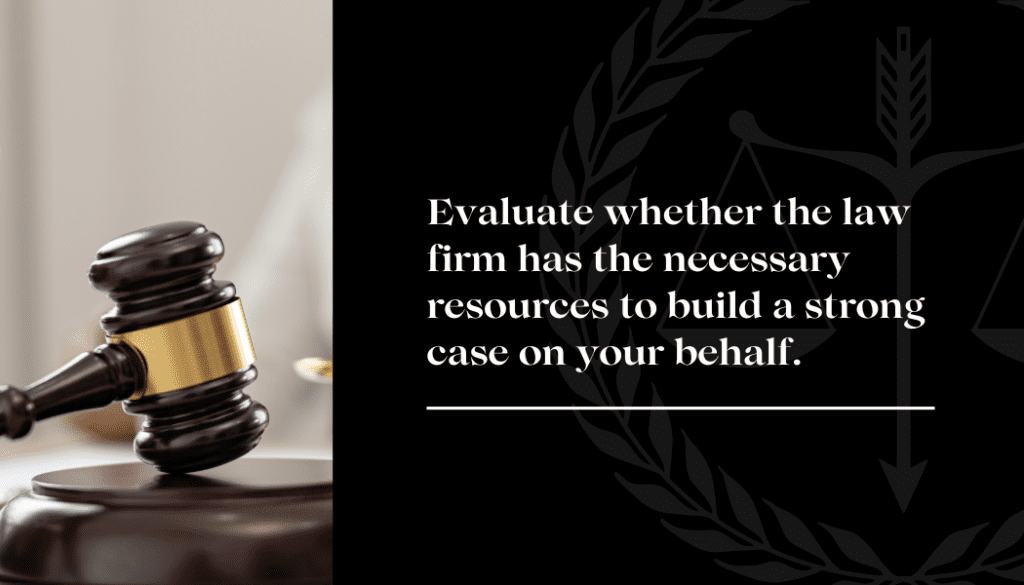Suffering an injury due to someone else’s negligence can be a life-altering experience. The right personal injury lawyer can help you receive fair compensation and justice. This article will guide you through the process of choosing the best attorney for your case so that you can make an informed decision during a difficult period.
Assess the Lawyer’s Experience and Expertise
When searching for a personal injury lawyer, prioritize experience in your specific type of case. Many types of accidents are encompassed in personal injury law. For example, Boston personal injury lawyer Michael D.Kelly works with a variety of cases, such as:
- Car accidents
- Pedestrian accidents
- Medical malpractice
- Product liability
- Worker’s compensation.
Look for an attorney who has successfully handled cases similar to yours. Ask potential lawyers about their track record, including the number of cases they’ve won and the average settlement amounts. An experienced personal injury lawyer will have a deep understanding of the legal nuances surrounding your type of injury and can navigate the complexities of your case more effectively.
Evaluate the Lawyer’s Reputation
You can tell a lot about a lawyer’s professionalism and competency by looking at their reputation in the legal community and among their previous clients. Research online reviews, testimonials, and ratings from reputable sources. Check if the personal injury lawyer that you are considering has received any awards or recognition in the field of personal injury law.
Additionally, ensure that any personal injury lawyer you’re thinking about working with does not have a bad reputation since this can be an indication of your experience after hiring them.
Consider reaching out to local bar associations or legal aid societies for recommendations. They can often provide impartial information about the personal injury lawyers in your area.
Assess Communication Skills and Availability
Effective communication is vital in any legal case. During your initial consultation, pay attention to how your potential personal injury lawyer explains legal concepts and answers your questions. A good personal injury attorney should be able to break down complex legal jargon into understandable terms.
Find out when the lawyer is available and how they prefer to be contacted. Will you be able to reach them directly, or will you primarily deal with paralegals or assistants? This way, you can set realistic expectations and have a smoother attorney-client relationship.
Consider the Firm’s Resources
Personal injury cases require significant resources, including expert witnesses, accident reconstruction specialists, and medical professionals. Evaluate whether the law firm has the necessary resources to build a strong case on your behalf.
Larger firms may have more extensive networks and financial capabilities, but smaller firms might offer more personalized attention. Weigh these factors based on the complexity of your case and your personal preferences.

Understand the Fee Structure
In most cases, law firms that work with personal injury cases offer cooperation with a contingency fee. This implies that you’ll only need to pay them if they help you win the case. However, the percentage they charge can vary. Discuss the fee structure upfront and ensure you understand all potential costs, including court fees and expert witness expenses.
Be wary of lawyers who guarantee specific outcomes or promise unrealistically high settlements. A reputable attorney will provide a realistic assessment of your case and potential compensation based on the facts and circumstances.
Evaluate the Lawyer’s Trial Experience
While many personal injury cases settle out of court, some may proceed to trial. Ask about the attorney’s trial record and their approach to courtroom litigation. A lawyer with strong trial skills can often negotiate better settlements, as insurance companies and opposing counsel know they’re prepared to take the case to court if necessary.
Review the Lawyer’s Disciplinary Record
Before making a final decision, check the lawyer’s disciplinary record with your state’s bar association. This step can reveal any past ethical violations or disciplinary actions taken against the attorney. A clean record doesn’t guarantee success, but it does indicate professional conduct and adherence to ethical standards.
Consider Specialization and Board Certification
Some states offer board certification for lawyers who demonstrate exceptional expertise in specific areas of law, including personal injury. While not all excellent lawyers are board-certified, this credential can be an additional indicator of a lawyer’s dedication and skill in personal injury law.
To help you in your decision-making process, consider the following comparison table of factors to evaluate when choosing a personal injury lawyer:
| Factor | Why It’s Important | How to Evaluate |
| Experience | Indicates ability to handle complex cases | Ask about years in practice and similar case history |
| Case Success Rate | Shows effectiveness in securing favorable outcomes | Request information on win/loss ratio and average settlements |
| Resources | Affects the ability to thoroughly investigate and present your case | Inquire about access to experts, technology, and support staff |
| Communication Style | Ensures you’re kept informed and comfortable throughout the process | Assess responsiveness and clarity during the initial consultation |
| Fee Structure | Helps you understand potential costs and align interests | Discuss contingency fee percentages and additional expenses |
| Trial Experience | Crucial if your case goes to court | Ask about the number of cases taken to trial and the outcomes |
| Client Reviews | Provides insight into client satisfaction and lawyer’s reputation | Read online reviews and ask for references |
| Specialization | Indicates focused expertise in personal injury law | Look for board certifications or specialized practice areas |
Choosing the right personal injury lawyer is a critical step in your journey toward justice and fair compensation. Take your time, ask questions, and trust your judgment when making this important decision. Your future well-being may depend on it.








